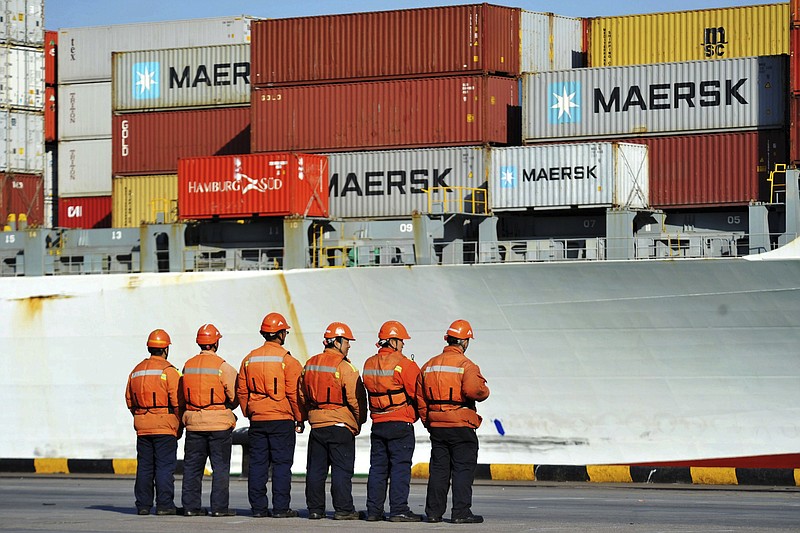WASHINGTON (AP) - Amid global fears of an escalating trade dispute between the U.S. and China, President Donald Trump suggested Beijing will ease trade barriers "because it is the right thing to do" and the economic superpowers can settle the conflict that has rattled financial markets, consumers and businesses.
However, fostering more uncertainty, the president's top economic advisers offered mixed messages Sunday as to the best approach with China, which has threatened to retaliate if Washington follows through with its proposed tariffs, even as Trump emphasized his bond with Chinese President Xi Jinping.
"President Xi and I will always be friends, no matter what happens with our dispute on trade," Trump wrote. "China will take down its Trade Barriers because it is the right thing to do. Taxes will become Reciprocal & a deal will be made on Intellectual Property. Great future for both countries!"
However, Trump did not explain why, amid a week of economic saber-rattling between the two countries that shook global markets, he felt confident a deal could be made.
The president made fixing the trade imbalance with China a centerpiece of his presidential campaign, where he frequently used incendiary language to describe how Beijing would "rape" the U.S. economically. However, even as Trump cozied up to Xi and pressed China for help with derailing North Korea's nuclear ambitions, he has ratcheted up the economic pressure and threatened tariffs, a move opposed by many fellow Republicans.
The Trump administration has said it is taking action as a crackdown on China's theft of U.S. intellectual property. The U.S. bought more than $500 billion in goods from China last year and now is planning or considering penalties on some $150 billion of those imports. The U.S. sold about $130 billion in goods to China in 2017 and faces a potentially devastating hit to its market there if China responds in kind.
China has pledged to "counterattack with great strength" if Trump decides to follow through on his latest threat to impose tariffs on an additional $100 billion in Chinese goods - after an earlier announcement that targeted $50 billion. Beijing also declared the current rhetoric made negotiations impossible, even as the White House suggested the tariff talk was a way to spur China to the bargaining table.
The new White House economic adviser, Larry Kudlow, said Sunday that a "coalition of the willing" - including Canada, much of Europe and Australia - was being formed to pressure China and the U.S. would demand the World Trade Organization, an arbiter of trade disputes, be stricter on Beijing. And he said although the U.S. hoped to avoid taking action, Trump "was not bluffing."
"This is a problem caused by China, not a problem caused by President Trump," Kudlow said on "Fox News Sunday."
However, he also downplayed the tariff threat as "part of the process," suggested on CNN the impact would be "benign" and said he was hopeful China would enter negotiations. Kudlow, who started his job a week ago after his predecessor, Gary Cohn, quit over the tariff plan, brushed aside the possibility of economic repercussions.
"I don't think there's any trade war in sight," Kudlow told Fox.
Treasury Secretary Steve Mnuchin said on CBS' "Face the Nation" that he didn't expect the tariffs to have a "meaningful impact on the economy" even as he left the door open for disruption. He allowed that there "could be" a trade war but said he didn't anticipate one.

